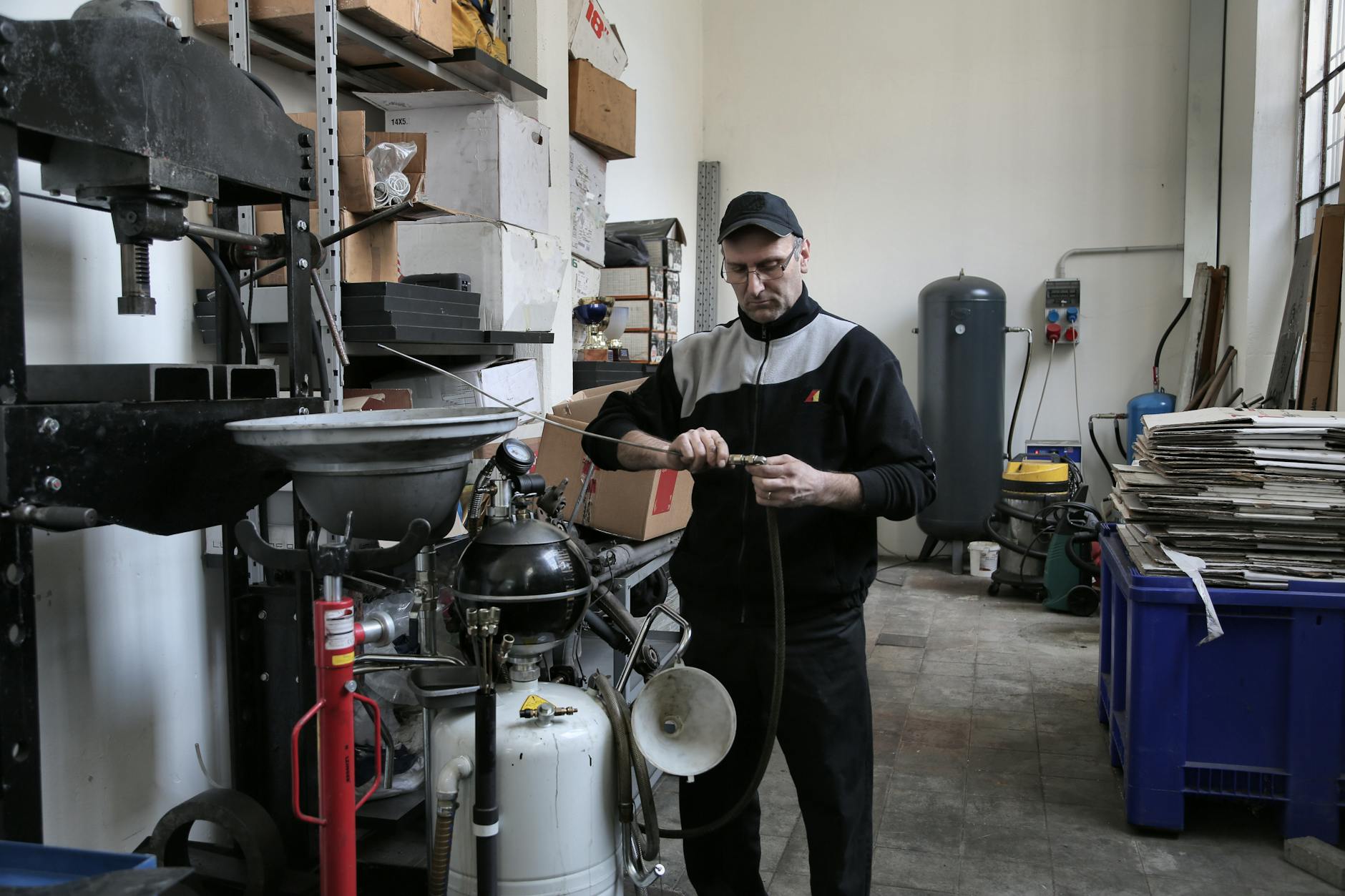How to Transition from Construction to Aged Care in Australia

Recognizing Transferable Skills
Transitioning from construction to aged care might seem like a leap, but there are valuable skills you already possess. Project management, a staple in construction, translates into effective leadership in the aged care sector. Successfully coordinating complex tasks showcases abilities that are essential in managing aged care training programs or even running a small business in this field.
Your hands-on experience from construction will find new applications in aged care, particularly in roles that demand physical activity and practical problem-solving. Building projects require careful planning and a deep understanding of tools—skills that can be applied when creating engaging activities or improving living spaces for senior residents.
Communication and problem-solving play pivotal roles in both sectors. Your ability to interact with various stakeholders and address unexpected challenges in construction can easily be adapted to managing family expectations and ensuring client satisfaction within aged care settings.
For those drawn to further professional development, exploring a diploma of community services could skillfully bridge gaps in understanding client care. This qualification provides comprehensive insights into community engagement, empowering you to make a meaningful impact.
Consider exploring childcare courses online at institutions like RMIT University, renowned for its insightful educational programs. Engaging with these resources may open new pathways in your career, mirrored by your attendance at events like networking opportunities through the Melbourne Convention and Exhibition Centre, enhancing your knowledge and experience in the sector.
Education and Training
Understanding Aged Care Courses
When considering a career shift into aged care, it's essential to grasp the different aged care courses available. These courses are tailored to equip you with fundamental skills and knowledge, ensuring you effectively support and care for elderly individuals. Various institutions offer diverse curricula, covering topics from personal care to emotional well-being, allowing you to find a course that best suits your interests and career goals.
Exploring Certifications and Diplomas
As you delve into career possibilities in the care sector, holding the right qualifications can significantly bolster your confidence and career prospects. Certifications and diplomas offer comprehensive frameworks to ensure you're well-prepared. Whether it's through early childhood education insights or specialised child care courses, these programs provide valuable skills applicable to aged care. They prepare you to be adaptable and proactive in meeting the unique needs of the elderly.
Online vs. In-Person Learning
Determining the best learning mode is pivotal for a successful transition. Online courses offer flexibility if you need to balance current work commitments, letting you study at your pace and convenience. On the other hand, in-person learning offers hands-on experiences and networking opportunities through institutions like RMIT University. This direct engagement can foster practical skills essential for real-world applications. Each option has distinct advantages, and choosing one depends on your learning style and schedule constraints.
Networking in the Aged Care Sector
Engaging with Local Communities
Embarking on a new career journey, especially in aged care, means stepping into a world that thrives on community connections. One effective strategy is to immerse yourself in local community services courses, which offer invaluable insights into patient care and community engagement. These courses not only provide essential knowledge but also network-building opportunities, crucial for your new venture. In Melbourne, the vibrant community events at Federation Square serve as a fantastic platform to mingle with like-minded professionals and gain exposure to the diverse aspects of aged care.
Attending Industry Webinars
For those of us transitioning from a hands-on trade to a more service-oriented role, webinars present an opportunity to understand the intricacies of the aged care sector. Online sessions tailored for aspiring care professionals online offer comprehensive knowledge about current industry trends and practices. Watching these webinars can sharpen your understanding, enabling you to make informed decisions as you pivot your career path. Through platforms offering aged care online courses, you can conveniently keep updated with industry standards and best practices.
Seeking Mentorship Opportunities
Finding a mentor in the aged care field is pivotal as they provide guidance and share valuable experiences. Mentorship can fast-track your learning curve and offer real-world insights that textbooks might not cover. It’s essential to leverage the networking opportunities through the Melbourne Convention and Exhibition Centre, where industry leaders often converge. Here, you can connect with seasoned professionals who can offer advice, support, and potentially open doors to new career opportunities.
Planning a Career Transition
Shifting careers from construction to aged care requires careful planning and balancing current commitments with new aspirations. To start, it's crucial to find a way to manage your present workload while exploring opportunities in the care sector. I suggest setting aside specific hours each week to research and engage with educational resources. Consider courses like cert 3 in individual support or a certificate iv in mental health to build foundational knowledge in caring for the elderly, which could complement your existing skills.
When crafting a timeline, it's helpful to break your transition into phases. Initially, you might focus on understanding the sector by attending webinars or participating in relevant online communities. As your interest evolves, consider enrolling in courses or seeking part-time opportunities to gain practical experience. Networking opportunities through the Melbourne Convention and Exhibition Centre can also provide valuable industry insights and connections.
Consider financial resources as a key part of your transition plan. If you’re worried about income during this period, explore scholarships, government funding options, or part-time work within aged care. These financial strategies can ease the burden while you broaden your skills.
Ultimately, planning for a successful career shift involves strategic time management and leveraging available resources to ensure a smooth transition into the aged care field.
Overcoming Challenges in Transition
Bridging Experience Gaps
Navigating the transition from construction to aged care involves recognising and addressing any experience gaps that may stand between you and your new career path. As someone connected to elder care start-up visionary networks, consider leveraging short-term volunteering or internships with aged care providers. These opportunities not only bolster your resume but also provide vital hands-on experience, thus easing the transition. Engage with insightful educational programs at RMIT University, which offer tailored training to bridge any knowledge gaps, aligning your existing skills with the needs of the aged care sector.
Overcoming Industry Jargon
One significant hurdle is the unfamiliar industry jargon that can often accompany a career shift into aged care. As an elder care visionary from Melbourne, I suggest immersing yourself in the language by attending networking opportunities through the Melbourne Convention and Exhibition Centre. This experience allows for both understanding and engagement with industry professionals. Additionally, accessing tailored vocab guides and glossaries through RMIT or similar institutions can facilitate your comprehension of key terms and concepts, making you feel part of the community.
Adapting to Care-Focused Work
Transitioning to a care-centric environment might seem daunting after a career in the hands-on world of construction. However, prioritising empathy and interpersonal skills can be empowering in this context. Engage with vibrant community events at Federation Square, not just to network, but to intuitively understand the community's ethos and the compassionate nature of care work. Through entrepreneurial insights, you can seamlessly merge your existing project management acumen with patient-centric approaches, ensuring your transition is both smooth and rewarding as you embark on this new professional journey.


